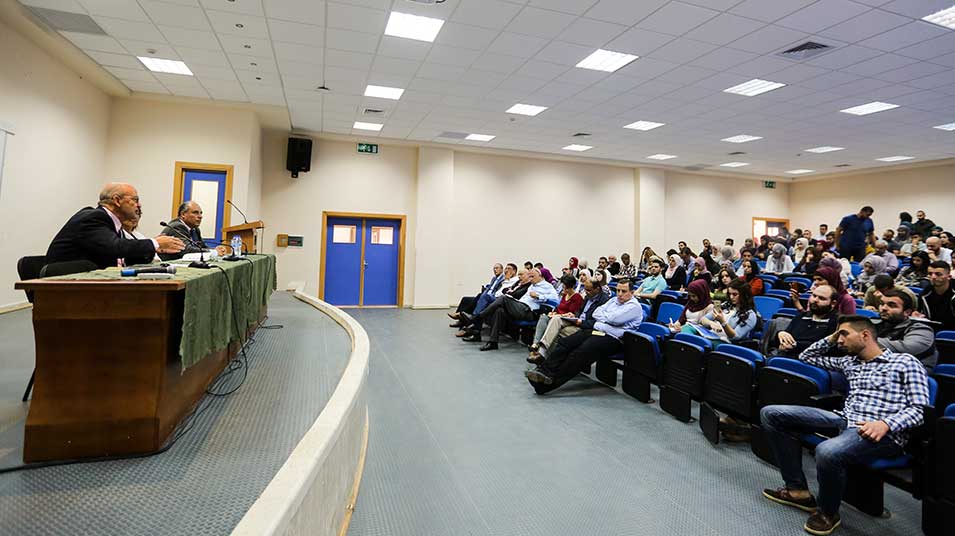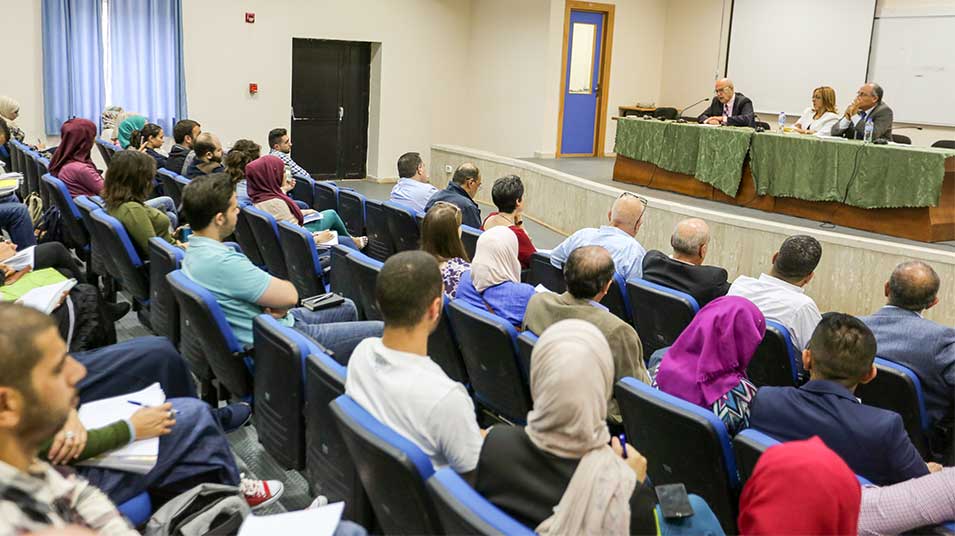Professors interpret the reasons behind Palestinian reconciliation
On October 14, 2017, the Ibrahim Abu Lughod Institute of International Studies at Birzeit University held a panel discussion on the reasons behind the recent Palestinian reconciliation agreement between Fatah and Hamas.
Political Science Professor Bassem Zubaidi and Director of the International Studies Master's Program Ali Jirbawi shared their perspectives and analyses on the factors and dynamics that paved the way for the Palestinian national reconciliation.
Zubaidi explored three key reasons that led to the rapprochement. Explaining the first reason, Zubaidi pointed out that “Palestinians are preoccupied with their daily life activities, and national unification is no longer a priority.”
The political science professor said that the second reason is related to the rise of extremism that does not support the two-state solution inside Israeli society. The last factor that led to the reconciliation, according to Zubaidi, is the dwindling status of the Palestinian cause after the Arab Uprising, normalizing the relationship between “Israel” and Arab states, in addition to the increase of American support to the Israeli government, especially after the election of Donald Trump as president of the United States.
Zubaidi pointed out that signing the agreement was easy, but implementing it is the hard part. "There is a number of obstacles that will hinder the success of the reconciliation agreement. The socioeconomic gap between societies, both in the West Bank and Gaza, will be one of the biggest obstacles."
"Fatah and Hamas did not discuss what should be accomplished," Zubaidi explained,. "They have only agreed to unite, without studying its implications, such security issues; how to reach out to the international world; and how to close the gap between Gaza and the West Bank."
Despite the continuous, yet failed, efforts, to reunite the Palestinian government in the past ten years, Jirbawi assured the audience that the recent reconciliation would succeed, “In addition to the primary changes that paved the way for this reconciliation, and the main change that made this agreement succeed is in the "will of the maestro - the American president, Donald Trump."
Jirbawi explained that the Palestinian reconciliation is part of Trump’s "ultimate deal" in the Middle East. "Trump is not looking for a fair and just solution to the Palestinian-Israeli conflict. Trump’s profits from the reconciliation are higher than continuous fragmentation among Palestinians."








